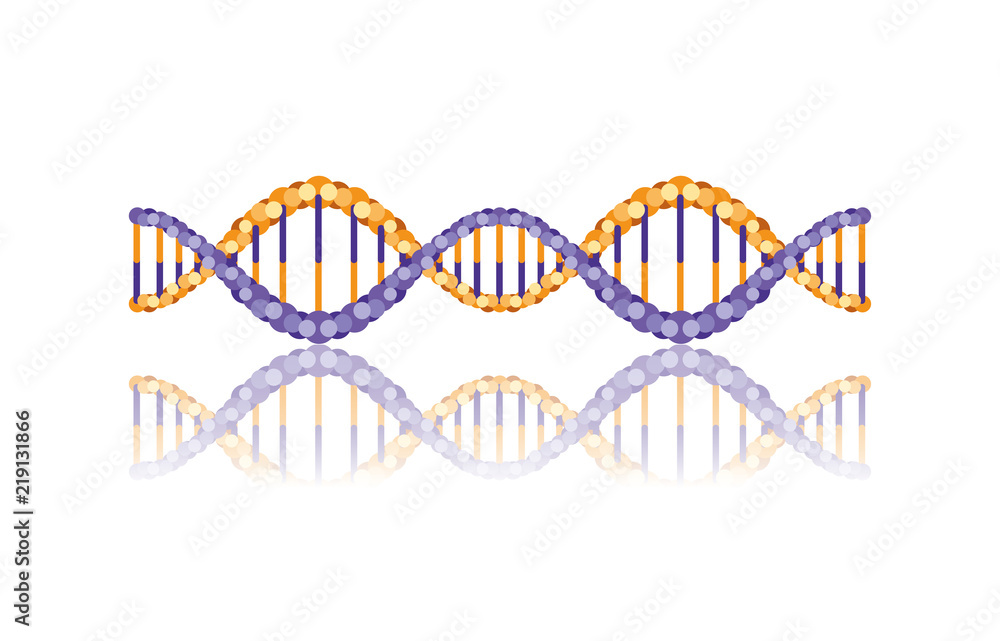
Exploring the Ethical Dilemmas of Genetic Engineering
The conversation around genetic engineering is exciting, intimidating, and, at times, confusing- but it is certainly one that needs to continue as medical and technological advancements continue to present opportunities for improvements in both quality and length of life. In Gattaca, we’re able to imagine some of those improvements while at the same time using a critical lens guided by Vincent’s voice over. As an “in-valid” member of society, Vincent exists on the less fortunate end of the spectrum. His parents chose not to modify his genetics in any way before his birth, and the genetic makeup he was born with made him less likely to live a healthy life and more likely to die young. His younger brother, on the other hand, was carefully chosen by his parents who worked with a geneticist presumably to prevent having another child with so many health risks and a higher likelihood of success.
Genetic engineering, “the deliberate modification of the characteristics of an organism by manipulating its genetic material,” has the potential to cure and prevent disease in humans. In fact, insulin treatments for diabetes are a result of genetic engineering (FDA, 2023), and so are many modern vaccines (Murray, et al., 1989).

The possibility of modifying humans on a large scale is something that social workers should pay attention to, not only because it will impact people’s experiences and outcomes, but also because it could create a scenario like the one seen in Gattaca, where individuals are segregated based on their natural abilities (immune system functioning, physical fitness potential, functionality of senses and systems) and their risks (likelihood of developing disease or early death). Where will the line be drawn in policy? In policy implementation? What about the line that separates what is socially acceptable and what is not (illegal segregation, bullying, employee selection). How will we define, let alone work toward, equitable treatment and access? We have to ask ourselves these kinds of questions now, so that we know where we stand when those lines begin to blur.
Environment and Social Determinants: Shaping Identity


Vincent decides to leave his family as an emerging adult, after spending his whole life surrounded by people determined to stomp out his ambition of becoming an astronaut. They may have been trying to protect him from disappointment, but who wants to stick around somewhere that their worth is measured by what they can’t do instead of what they can? Soon, he enlists the help of a black-market identity dealer who connects him to Jerome, who is wheelchair bound after being a car accident a year prior. Vincent puts himself through rigorous training and other physical modifications in order to assume Jerome’s identity as a genetically perfect individual, with seemingly endless potential, and applies to the job of his dreams. Jerome becomes Vincent’s primary social support, and consistent positive feedback from his peers and supervisors work keep his motivation high. In an environment where it was assumed that Vincent would succeed, it must have been easier to get over the hurdles of mental blocks like self-doubt and feelings of inadequacy. Not necessarily EASY. But easier. This really goes to show the impact that supportive environments can have on mentality, determination, and ambition.
Discrimination, Social Stratification, and Resistance
In Gattaca, society is segregated by genetic make-up and condition: those with weak, vulnerable genes and predispositions for disease and early death are valued the least; those with strong, disease resistant genes and predispositions for successfully contributing to society are valued the most; and the rest are positioned on that spectrum based on their genetics. Watching the film, it’s almost offensive just to witness how loudly and apparently those with poor genes are referred to as “in-valids” by those in positions of power, by the alert images posted on every screen in the Gattaca facility, and by the detectives and police investigating the murder of the mission commander- especially considering the historical harm and trauma associated with such strong language distinctions being used in the media and by law enforcement. But the issue ran deeper than just what jobs a person could get or how they were treated by those in power. The way Vincent, with undesirable genes, was treated by his parents and his brother was impacted by society’s views and perceptions of individual worth. It makes me think about how kids with learning disabilities are quickly excused and expected to perform across the board at a lower capacity than their peers, the way race can impact the outcome of getting pulled over for speeding, and the way women are valued less in many areas despite their crucial and irreplaceable contributions to communities, workplaces, and families the world over (which is really understating the reality of what women have done and continue to do).
What Can We Do?
Individuals and communities can resist and challenge systemic inequalities in several ways that we’re seeing in the present, like attending protests and demonstrations, participating in marches, and even getting more politically involved. Voting at the local level makes a bigger difference than many people realize, and making a valid argument at open forums in the community can make a big impact. Individuals can also be aware of their own degree of privilege and use that privilege to advocate for those without it, and communities can work together to bring attention to issues they are facing, brainstorm, and find solutions. Social workers can work with individuals and communities in these efforts by bringing their resource knowledge and coordination skills and policy knowledge and communication skills to the table, and we can help make connections between community members and their governments.



I know a lot of these suggestions are revolving around politics and political action- that’s because genetic engineering is a beast that is only contained by policy and will only remain contained by policy implementation and adherence. No matter who you vote for, understanding that the implications of genetically modifying humans is not a black and white, right or wrong subject is essential, and ethical social work practice will place some of us in the rooms where these conversations are happening. And those conversations will inform and equip policy. And those policies will impact all of us.
References:
FDA. (2023, April). Science and history of gmos and other food modification processes. U.S. Food and Drug Administration. https://www.fda.gov/food/agricultural-biotechnology/science-and-history-gmos-and-other-food-modification-processes
https://www.fda.gov/food/agricultural-biotechnology/science-and-history-gmos-and-other-food-modification-processes
Murray K, Stahl S, Ashton-Rickardt PG. Genetic engineering applied to the development of vaccines. Philos Trans R Soc Lond B Biol Sci. 1989 Aug 31;324(1224):461-76. doi: 10.1098/rstb.1989.0060. PMID: 2573084.
Comments
7 responses to “There is No Gene for Fate”
Nice write up. Yes, it appears that being genetically modified by scientists to change certain illness or disease can be unethical as in the case of Vincent. Below is a paragraph from WHO:
“Human genome editing has the potential to advance our ability to treat and cure disease, but the full impact will only be realized if we deploy it for the benefit of all people, instead of fueling more health inequity between and within countries,” said Dr Tedros Adhanom Ghebreyesus, WHO Director-General.
https://www.who.int/news/item/12-07-2021-who-issues-new-recommendations-on-human-genome-editing-for-the-advancement-of-public-health
I guess what I’m trying to imply is that, if it will help the person be better, then there should be no negative assumptions, criticism or discrimination.
Ada, thank you for reading my blog and adding a different perspective to the potential of genetic engineering!
Hello Charles,
I enjoyed this post! I personally believe that if Genetic Engineering can save life’s I’m all for it. Now taking in consideration different income bracket’s, race and gender I believe as mentioned it would have to be available to all. More money than one person shouldn’t allow one to live longer than another, that seems a bit inhumane but shoot I guess that happens all the time because magic Johnson has out lived everybody with HIV but maybe he’s didn’t progress to aids and others did but again that goes back to having the money to fight for your life. All in all if it’s safe and everybody has access to it I’m fine with it.
Hey Niko! Equal and equitable access are definitely going to be important moving forward, especially considering like you said that income, race, and gender differences impact access to care now. Magic Johnson is a really good example of that kind of inequity, because he contracted HIV at a time where treatments were not as widely available and accessible as they are today and his status and money were an advantage.
I love the idea of it helping save lives. I think everything needs to be available to everyone no matter who they are. That is not fair if it is only available to certain people. That is like the healthcare system now. People get better treatment because they have money. I know I am thankful for my insurance through my job but if I had to get my own insurance then I would never have insurance because it is too expensive.
Exactly! Accessibility is going to be a huge issue, and the way our healthcare system is currently set up, only people who can afford it can benefit from it. I think the potential to save lives is great, but because of the inequities in care now, its hard to see that potential being available for everyone.
When first married, (24 years ago now) the world of genetics still believed in “junk DNA”, which of course is now understood that there is no such thing, even if it’s purpose isn’t fully understood. The general concept of genetic manipulation was more pipe dream than reality, unless you were hoping on create a glow-in-the-dark rabbit or a cloned sheep. A few years later, we are expecting out first child and the question of genetic screening came up. Do we want to test for Down Syndrome, Tray-Sachs, or the host of other chromosome and genetic issues? We decided, we would keep the child no matter what outcome we found out, therefore, there was no reason to test.
Fast forward. My daughter has an chronic auto-immune disease that requires Humira injections every week at what used to be $8600 each. The price has fallen to around $7200, which the company advertises as though they are proud of such a philanthropic venture, but to me feels like a slap in the face. We still couldn’t afford even one if we both didn’t work for the IHS and have the best insurance money can provide.
This genetic deficit unfortunately does and will continue to sway, if not right out dictate my daughters destiny. While her love is art and graphic design, she is more than aware that she needs to be highly educated and well placed in the health care world – as they more than often have “in-house” rates, and better insurance then most companies can bargain for. In fact she has a little more than seven years, and she will no linger be eligible to be under our insurance. Tick Tock honey, tick tock.
What would we do as parents to give our children a normal life span, or an even longer life span. My wife and I disagree to what lengths we should go to make this happen. Regardless, I can easily see ethical issues that could arise with genetic manipulation, though I expect I might do it anyway if given the chance.
I personally thought the movie was thought provoking. Perhaps a little boring, but thought provoking.